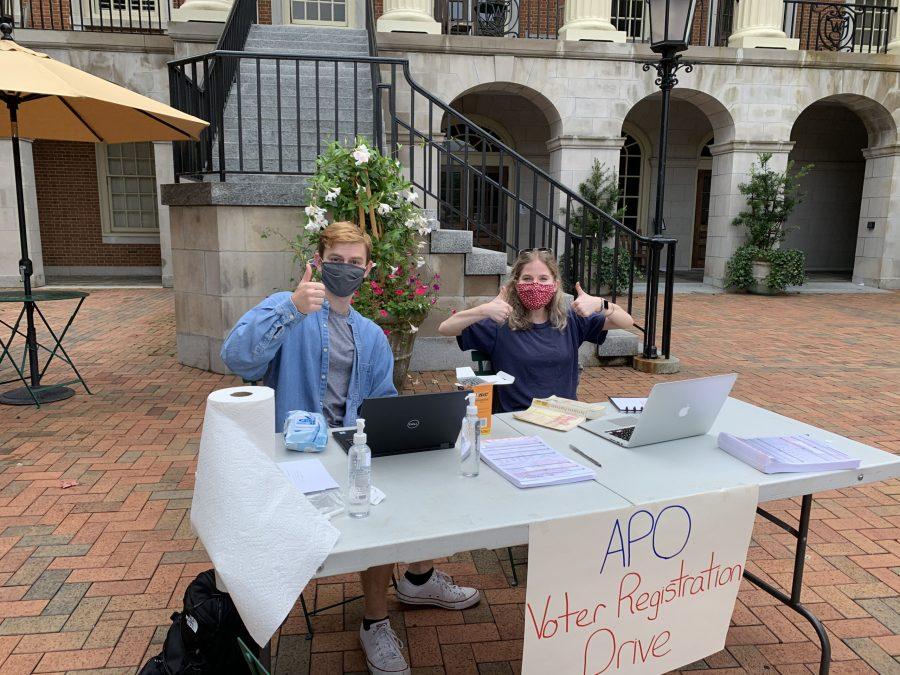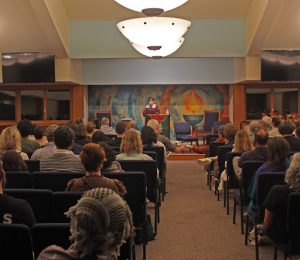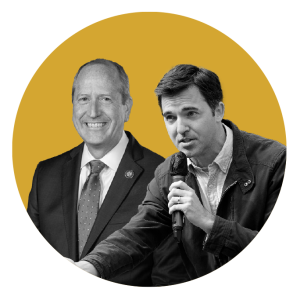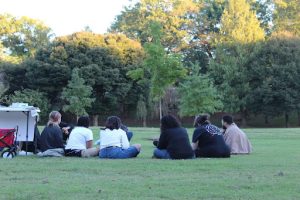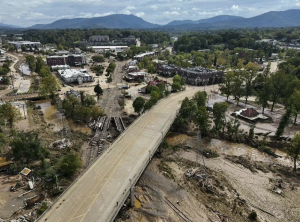APO faces difficulties amid pandemic
October 8, 2020
It’s a Monday night around 9 p.m., but instead of heading to Benson University Center to connect with a packed crowd in Pugh Auditorium, members of service fraternity Alpha Phi Omega (APO) Zoom into their bi-weekly meeting from their computers.
The question of how to run a hands-on service organization, with 217 members, during a time when everyone has to stay six feet apart is one that junior Julia Medina, along with the other members of APO’s executive board, have been grappling with for months.
“I’m very aware people are tired of being online. They say to me I don’t want to be looking at a screen all day,” Medina, the Fellowship vice president of APO, said.
Two of the major impacts of the pandemic have been economic and social. APO, as a service organization, in normal times helps provide economic relief to its community partners and social opportunities to its members. Last spring, APO members contributed over 5,000 hours of service to Wake Forest and the Winston-Salem community through service options such as volunteering for Habitat for Humanity or tutoring underprivileged children. They also made time for nearly 3,400 hours of social service within their organization.
In current times, both the social wellbeing of Americans, as well as their economic stability, is threatened. More than one in three adults in the U.S. has reported symptoms of anxiety or depression during the pandemic as a result of social isolation, compared to one in ten before it hit. In addition, 4.26 million North Carolinians considered part of the state’s workforce as of mid-August have filed a state or federal unemployment claim. APO attempts to alleviate some of these issues in local areas which have been exacerbated by the pandemic.
“Pass the ball!” “Shoot!” “Goal!” Words that used to resound across the field behind El Buen Pastor Latino Community Services (LCS) in Winston-Salem many days of the week are no longer heard. APO members used to go every day after school to tutor and play soccer with the underprivileged kids whom LCS supports. Now they have once weekly Zoom calls for tutoring.
The pandemic has slowed, but not stopped the members of APO from working towards their goal of supporting the community.
“Tutoring over Zoom has definitely been beneficial to the kids, but there are big differences in the personal aspect of the experience that used to exist,” said Cassidy Willard, the service vice president. “Just doing schoolwork with them doesn’t create the same connection.”
Normally APO has partnerships with 41 organizations in the Winston-Salem community. Because of coronavirus, that number is currently down to 11. Events such as a Rise Against Hunger fundraiser, which usually raises around $10,000 to combat world hunger, have been scrapped completely.
“When I look at APO I think its an organization that strives to make a community better, that community being the Wake Forest student body, Winston-Salem, Forsyth County and underprivileged people as a whole,” said professor Sam Gladding, faculty advisor to APO, “I am really proud of what they are doing.”
Social events have been impacted drastically as well. No songs around the campfire while roasting marshmallows this year. APO’s annual social outing to the mountains, which usually consists of around 40 members, was cut because it was impossible to make it conform to COVID-19 guidelines.
The APO formal, which usually involves over 400 people, has been canceled. “The formal is hard to miss, especially as a senior,” said senior and APO president Addison Collins.
Being lulled to sleep by the soothing sound of a bedtime story read by fellow APO members, or moving into downward dog in your room while on Zoom yoga are some examples of innovative new social events that have been created by the executive board.
“APO represents a home and safe haven for so many people,” Collins said. “The pandemic has brought up so much stress and isolation and anxiety. When things seem terrible, APO is a great place to connect.”
Even with all the limitations that come with running an organization like this during a pandemic, the members consider maintaining APO a near necessity.
“The pandemic has already taken away so many things from so many people. Now more than ever service is important and there are still people who need our help,” Medina said, “If APO is taken away it would just be one more thing that is missing from our lives.”


